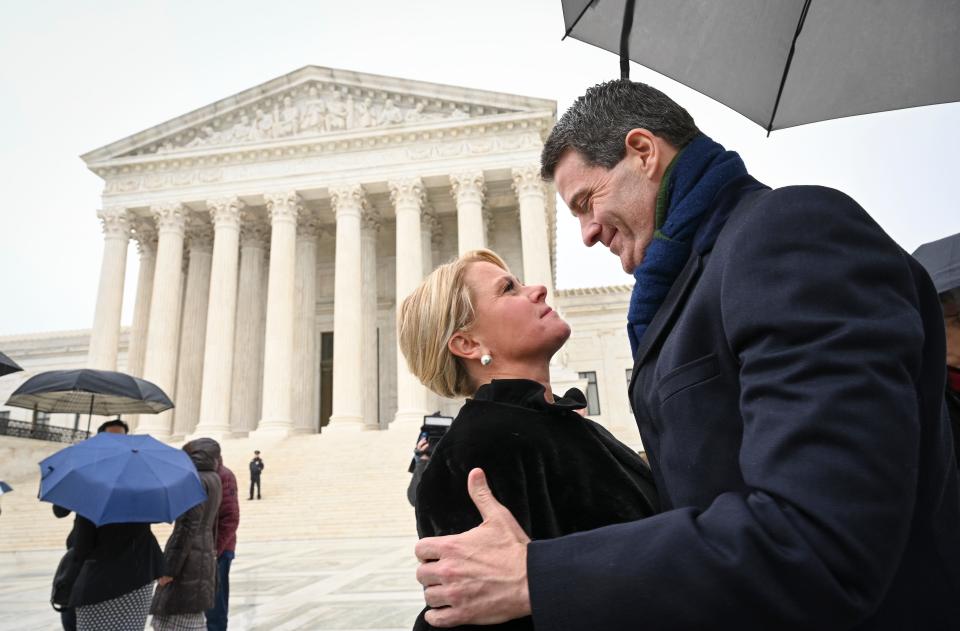Supreme Court skeptical that 2013 'Bridgegate' scandal was a crime
WASHINGTON – The federal government faced tough questions at the Supreme Court Tuesday in defending criminal penalties levied against public officials who shut down access lanes to the George Washington Bridge in 2013 for political retribution.
Though none of the justices said the actions of former New Jersey Gov. Chris Christie's associates were justified, a majority of them doubted that it amounted to property fraud worthy of prison sentences.
The scandal, which became known as "Bridgegate," was hatched when the Christie aides faked a traffic study to create gridlock for several days in Fort Lee, New Jersey, whose Democratic mayor refused to endorse the governor's reelection bid. Christie, who was not charged, was inside court for the oral argument.
More: Chris Christie sits in as Supreme Court considers whether Bridgegate was actually a crime
Federal prosecutors charged Christie's aides with fraud and won 18-month prison sentences, which were set aside, pending the Supreme Court's review.
Chief Justice John Roberts argued that one of the officials, William Baroni of the Port Authority of New York and New Jersey, had authority to regulate lane usage on the George Washington Bridge, the busiest in the world.

Associate Justice Stephen Breyer said Baroni's actions, along with those of Christie aide Bridget Anne Kelly, did not stop the general public from using the bridge.
"It was just a problem getting there – which was quite a problem, I grant you," Breyer said.
The appeal in Bridgegate is the latest in a series of cases in which the high court has looked skeptically – and often reversed – federal prosecutors' creative use of criminal laws to win convictions.
In 2016, the court vacated the conviction of former Virginia Gov. Robert McDonnell, who had been sentenced to two years in prison for accepting luxury gifts and loans from a wealthy businessman in exchange for "official acts." The justices ruled unanimously that those acts were commonplace actions taken on behalf of constituents.
The ruling made it harder for prosecutors to use federal fraud statutes against public officials by characterizing what the justices called common favors as crimes.
The Supreme Court began pushing back against public corruption prosecutions in 1987, reversing the conviction of Kentucky officials who skimmed money paid by the state to insurance companies. The court reasoned that fraud statutes do not guarantee officials will "perform their duties honestly." A generation later, it added that "honest services" fraud must include bribery or kickbacks.
Jacob Roth, the lawyer representing Kelly, told the court there were no bribes or kickbacks in the Bridgegate scandal. His client, he said, "simply reallocated" lanes on the bridge from one public use to another, adding, "I'm not trying to suggest that this is OK."
Associate Justice Samuel Alito, a former U.S. attorney for New Jersey, said the scheme required Port Authority workers to spend time on a traffic study that was contrived.
"Money is property," Alito said, "and money was lost."
When U.S. Deputy Solicitor General Eric Feigin expanded on that theory of "commandeering fraud," Alito and several other justices voiced skepticism.
"The object of this deception was not to obtain property," Associate Justice Elena Kagan said. "The object was to create a traffic jam. The object was to benefit people politically."
This article originally appeared on USA TODAY: Bridgegate: NJ scandal over GW Bridge gridlock reaches Supreme Court

